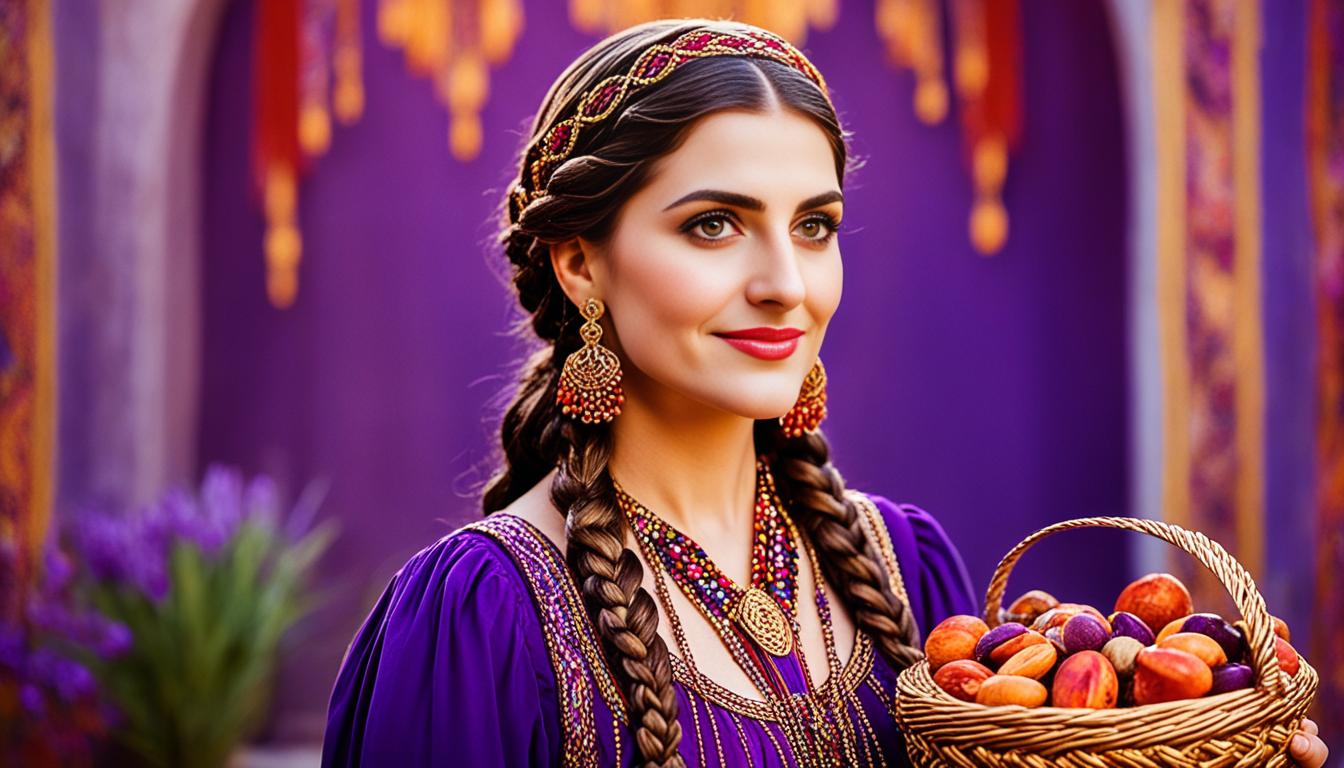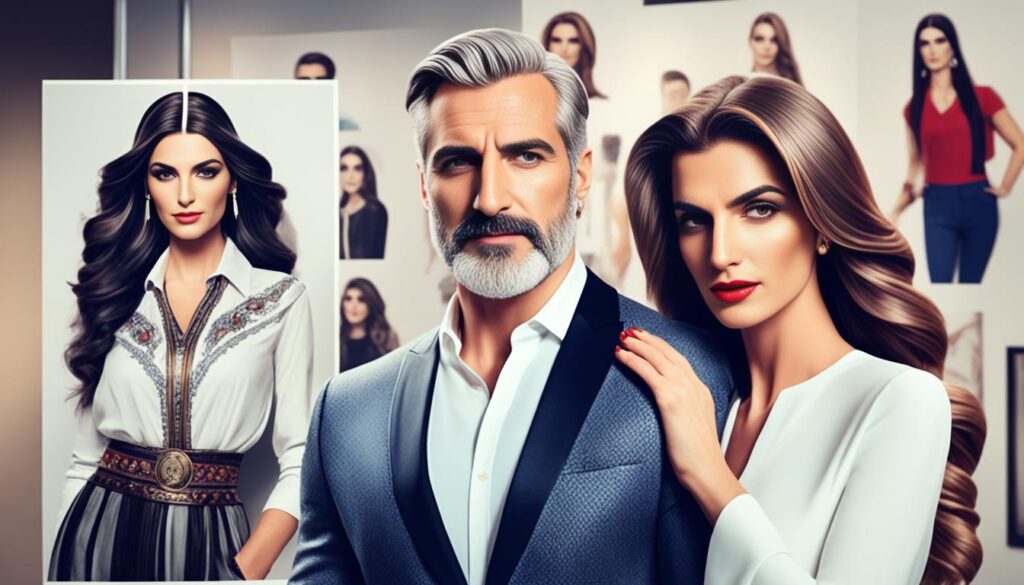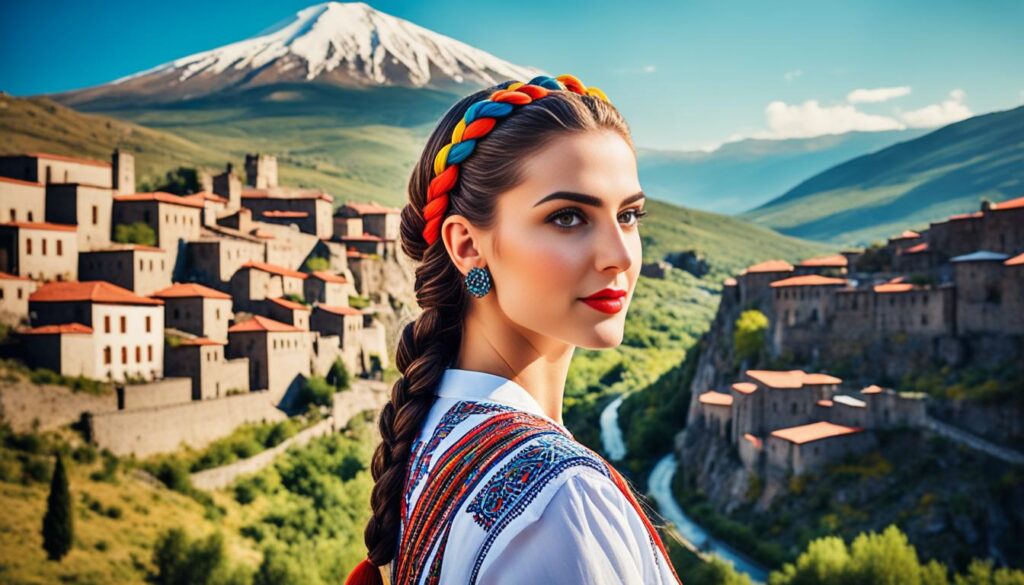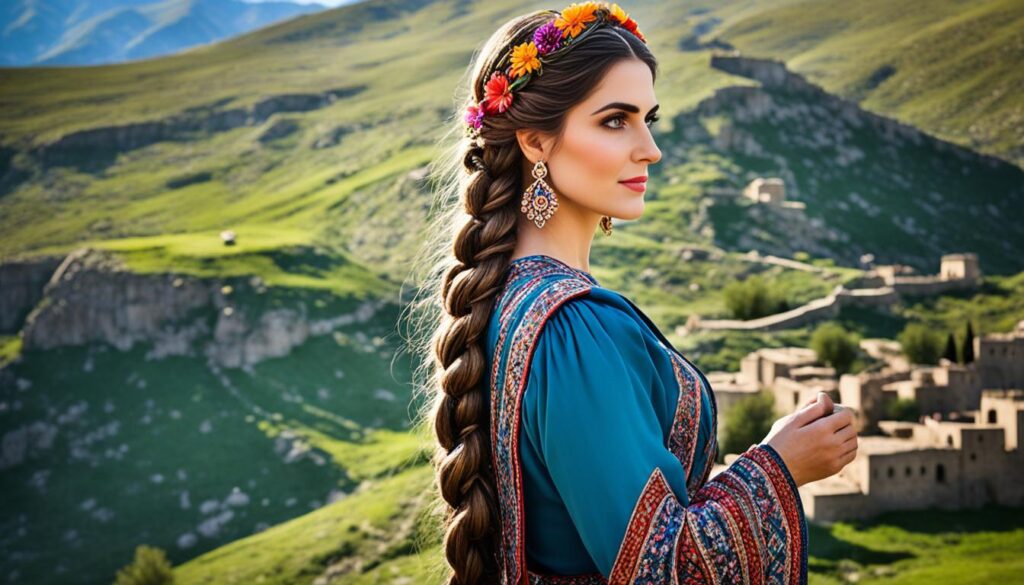
When it comes to hairstyles, every culture has its own unique traditions and customs. In Armenia, braided hairstyles have long been a part of the country’s cultural heritage. But can Armenian people still wear braids in modern times? Are braids still a significant aspect of Armenian hair culture? Let’s explore the cultural significance of braids in Armenia, the historical tradition behind them, and how modern hairstyle trends have impacted this cherished tradition.
Key Takeaways:
- Wearing braids has deep historical and cultural significance in Armenian culture.
- Braids symbolize beauty, unity, and strength in Armenian tradition.
- Braids have declined in popularity among Armenians due to the influence of Western fashion trends.
- Modern Armenian hairstyle trends lean towards shorter cuts and embracing natural hair textures.
- Despite the decline, braids still hold cultural significance and remain a representation of Armenian identity.
The Historical Tradition of Braids in Armenian Culture
Wearing braids has a long history in Armenian culture. In the past, Armenian women typically had long hair and wore braids for practical reasons, such as managing their hair during daily activities. Braids also held cultural significance and were often elaborately styled for special occasions. They symbolized beauty, unity, and strength, and were an integral part of traditional Armenian dances. Braids were associated with female characters known for their resilience and endurance. The process of weaving braids also served as a means of social cohesion and the exchange of generational wisdom among women.
| Hairstyle | Description |
|---|---|
| Hin Toun | A classic Armenian hairstyle involving a single braid wrapped around the head, symbolizing elegance and grace. |
| Yeraz | A hairstyle featuring multiple braids decorated with ribbons and flowers, commonly worn by brides on their wedding day. |
| Sosik | A traditional hairstyle characterized by tightly woven braids framing the face and worn during festive events and celebrations. |
Significance of Braids in Armenian Culture
“Braids symbolize beauty, unity, and strength in Armenian culture. They are not only an expression of style but also a representation of cultural heritage and identity.” – Anahit Martirosyan, Armenian Cultural Historian
The historical tradition of wearing braids in Armenian culture showcases the deep cultural significance these hairstyles hold. Braids were a visual representation of beauty, unity, and strength, and they played a vital role in traditional Armenian dances. Female characters in folklore and mythology known for their resilience and endurance were often depicted with braided hairstyles.
The weaving of braids was not only a practical solution but also a social activity that promoted social cohesion and bonding among women. It served as a platform for the exchange of generational wisdom, where older women would teach younger ones the art of braiding and share stories and traditions.
While the popularity of braids may have declined in modern times, the historical tradition and significance of braids in Armenian culture remain deeply valued. Today, braids are still worn by some Armenian women, particularly on special occasions or as a way to connect with their cultural heritage. However, the influence of Western fashion trends has shifted the preferences towards shorter hairstyles and natural textures.
The Decline of Braids in Modern Armenian Culture
The popularity of braids among Armenians has experienced a decline in recent times, mainly influenced by Western fashion trends. In modern Armenia, hairstyles have shifted towards shorter cuts that are considered more modern and low maintenance. As a result, Armenian women, particularly the younger generation, are embracing their natural textures and prioritizing hair health.
One of the popular hairstyles among urban Armenian women over 30 is loose, wavy hair, which exudes a sense of effortless beauty. This style allows for versatility and can be easily achieved without the need for intricate braiding techniques. Although some Armenian women still wear braids, they are more commonly seen among children, teenagers, and dancers performing traditional Armenian dances.
Armenian hairstyles have evolved to reflect the influence of Western fashion and the desire for more contemporary looks. This shift represents a departure from the traditional braided hairstyles that once held cultural significance within Armenian culture.

“The popularity of braids among Armenians has declined in recent times, primarily due to the influence of Western fashion trends.”
Modern Hairstyle Trends in Armenia
In modern Armenia, there has been a shift in hairstyle trends, with short haircuts gaining popularity among young and mid-aged women. These short haircuts not only offer a contemporary aesthetic but also require less maintenance, making them a practical choice for many Armenian women.
One notable trend in modern Armenian hairstyles is the embracing of natural hair texture. Many women are moving away from elaborate styling techniques and opting to enhance their natural hair. This shift towards embracing natural hair emphasizes individuality and celebrates the diverse beauty found among Armenian women.
A popular hairstyle among urban Armenian women over 30 is loose, wavy hair. This style exudes a sense of effortless elegance and is often sought after by those looking to achieve a relaxed yet polished look. Hairdressers in Armenia are well-versed in creating voluminous and wavy hair, offering women the opportunity to showcase their natural beauty.
Armenian celebrities play a significant role in influencing hairstyle trends in the country. Their distinctive looks and bold choices inspire many women to experiment with different styles and find their own unique look.

Armenia’s Shift towards Diverse and Modern Hairstyles
Modern Armenian hairstyles have moved away from traditional braids and long hair towards more diverse and contemporary looks. This shift reflects the evolving fashion and beauty landscape in Armenia, as well as the desire for self-expression and individuality.
By embracing modern hairstyle trends, Armenian women are not only keeping up with global fashion influences but also celebrating their own cultural heritage. It is a powerful way to showcase the dynamic nature of Armenian identity and embrace the ever-evolving beauty standards of the modern world.
Preserving Cultural Heritage Through Hairstyles
While the popularity of braids has declined in Armenia, they have a deep-rooted cultural significance as a symbol of being an Armenian woman. Braids may no longer carry the same symbolism of unity or protection, but they remain a powerful representation of cultural heritage.
For those who choose to wear braids, it serves as a way to connect with their Armenian identity and proudly showcase their heritage. Despite the shift towards modern hairstyles, the Armenian cultural heritage is still cherished and celebrated through various aspects of Armenian life, including hairstyling traditions.
Preserving cultural heritage is crucial in maintaining a sense of identity and fostering a strong community bond. Armenian braids are a tangible way to honor and pass down traditions from one generation to the next.
“Braided hairstyles in Armenian culture are more than just a fashion statement. They carry the weight of our history, symbolizing strength, resilience, and cultural pride. By preserving our traditions, including our hairstyles, we ensure that our cultural heritage remains alive and vibrant,” says Anna, a proud Armenian woman.
Armenian Braids and Symbolism
“In Armenian culture, braids hold a deep symbolism. They represent the strength and beauty of Armenian women. Braids also serve as a reminder of our ancestors and the importance of preserving our cultural heritage,”
– Lilit, a cultural historian.
The symbolism of braids in Armenian culture can be seen in historical artwork, literature, and traditional dances. They were not just a hairstyle but a representation of femininity, unity, and ancestral connections.
| Symbolism of Braids in Armenian Culture: | Meaning: |
|---|---|
| Strength | Braids symbolize the inner and outer strength of Armenian women. |
| Beauty | Braids were associated with the beauty and elegance of Armenian women. |
| Cultural Pride | Wearing braids is a way to showcase Armenian cultural pride and identity. |
| Ancestral Connections | Braids serve as a reminder of the deep-rooted ancestral connections and traditions. |

Despite the shift towards modern hairstyles, there is a growing movement to preserve and celebrate Armenian braids as a valuable part of the cultural heritage. By embracing and honoring these traditions, Armenians continue to connect with their roots and maintain a sense of belonging in an ever-changing world.
Conclusion
Armenian cultural traditions have long revolved around the significance of hair, particularly the tradition of wearing braids. Although the popularity of braids has declined in modern times, it remains an essential part of Armenian identity and cultural heritage.
Historically, braids symbolized beauty, unity, and strength in Armenian culture. They were not just a practical way to manage long hair but also held deep cultural significance. Braids were intricately styled for special occasions and were integral to traditional Armenian dances. Furthermore, the process of weaving braids fostered intergenerational connection and social cohesion among Armenian women.
In recent years, however, Armenian hairstyles have shifted towards shorter cuts and embracing natural hair textures. While braids are still worn by some individuals, especially among children, teenagers, and traditional dancers, the overall trend has moved towards more modern and diverse hairstyles.
Nevertheless, despite the changing hairstyle preferences, Armenian identity and cultural traditions are still deeply cherished and preserved in various ways. Whether it’s through braids or other hairstyles, Armenians continue to honor and celebrate their unique hair traditions, further strengthening their cultural heritage.






